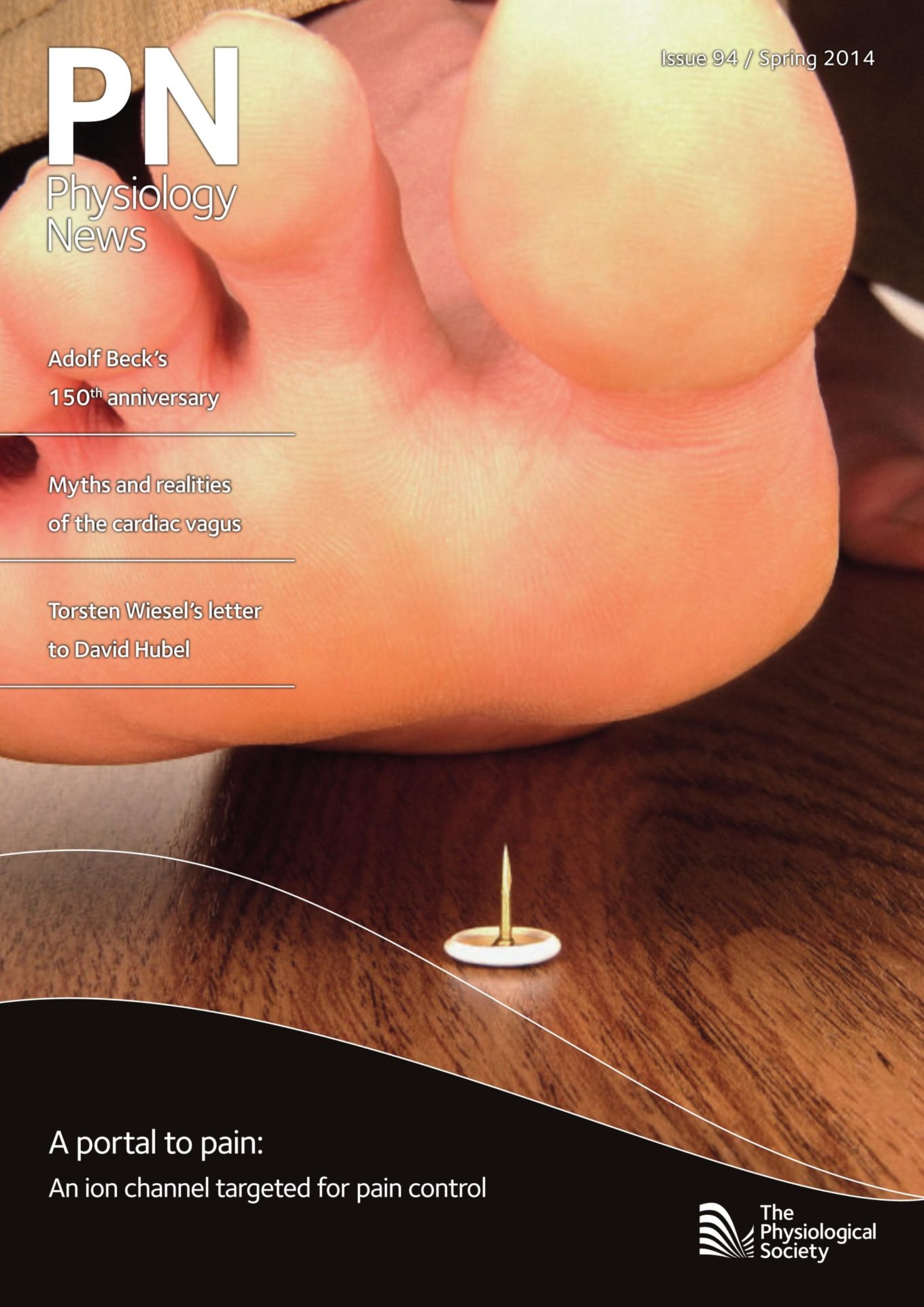
Physiology News Magazine
Obituary: Colin Ingram
1960 – 2013
Membership
Obituary: Colin Ingram
1960 – 2013
Membership
Gareth Leng
https://doi.org/10.36866/pn.94.50

Colin David Ingram, Director of the Institute of Neuroscience at Newcastle University, passed away suddenly at home on 15 December 2013 aged 53, leaving a wife, Christine, and children Alex, Rachael and Miles.
Colin was an outstanding neuroscientist; his focus throughout his career was on the neuroendocrine systems that regulate stress and reproduction, and his work encompassed studies of the secretion of growth hormone, prolactin, oxytocin, vasopressin and ACTH employing a diverse array of techniques. Lately, his focus was on the psychobiology of stress, anxiety and depression, and this led him to studies of the factors regulating serotonin neurones in the dorsal raphe nucleus, especially the interaction with adrenal steroids, and the possibility that modulation of either corticosteroid levels or their effect might have therapeutic potential for the treatment of affective disorders. He also developed a strong interest in how data may be analysed and shared using developments in the computing grid (cyberinfrastructure) and in this capacity he led the CARMEN e-science project.
I first met Colin when he, then an undergraduate student at The University of Bath, came to the Babraham Institute as a sandwich student to undertake a 6-month research project with John Bicknell and me. We were then interested in stimulus–secretion coupling in the neurohypophysis, and Colin worked with an in vitro perifusion system to study oxytocin and vasopressin release from the rat pituitary in response to electrical stimulation. That project led to his first paper, and deservedly he was the first author (Ingram CD et al. 1982, Neuroendocrinology 35, 424-8). His success marked him out as an exceptional talent, and after graduating from Bath (with first class Honours, in 1982) he returned to Babraham for his PhD, where he made pioneering studies of the electrical activity of lactotrophs. With his PhD behind him, in 1986 he went to Bristol as an MRC Training Fellow, where he worked with Jon Wakerley on the control of the milk-ejection reflex and where he forged a key collaboration with Francoise Moos, then in Strasbourg. In 1988, he won a Royal Society University Research Fellowship, and in 1996, was appointed a reader at Bristol. This period saw Colin develop a key collaboration with Stafford Lightman, studying the hypothalamo-pituitary-adrenal stress axis. That collaboration continued throughout his career, long surviving his own move to Newcastle University in 2000. The 26th paper from that productive collaboration appeared last year in Endocrinology.
Colin’s work for the broader scientific community won him enormous respect and affection internationally, and he forged close links with scientists from Romania to Australia. He was a stalwart (and one of the founding members) of the British Society for Neuroendocrinology, and with Stafford Lightman was an organiser of the International Congress of Neuroendocrinology at Bristol in 2002. He became very active in the British Neuroscience Association and at the time of his death was their Honorary Secretary.
Colin’s talents as a communicator and teacher were well known, and are well displayed in a video of his keynote lecture at Kobe in 2004 ‘Working in the clouds: creating an e-science collaborative environment for neurophysiology’ youtu.be/hdR10_A-vR0
The Society also regrets to announce the death of:
Helen Duke
who became a Member in 1950 and published in respiratory physiology while at the Royal Free Hospital School of Medicine and the Middlesex Hospital Medical School.
Roger Wadsworth
who was elected a Member in 1990 and was Professor of Cardiovascular Pharmacology at the University of Strathclyde.
Notices and full obituaries can be found The Society website at www.physoc.org/obituary-notices
